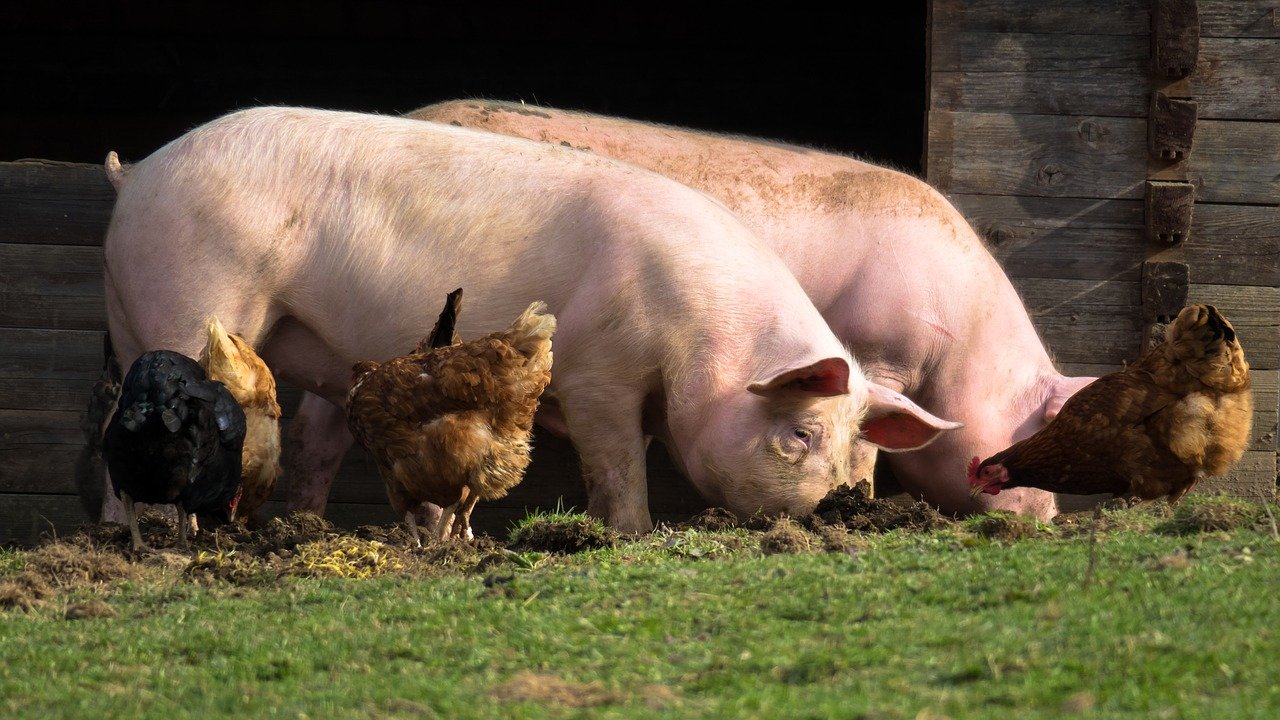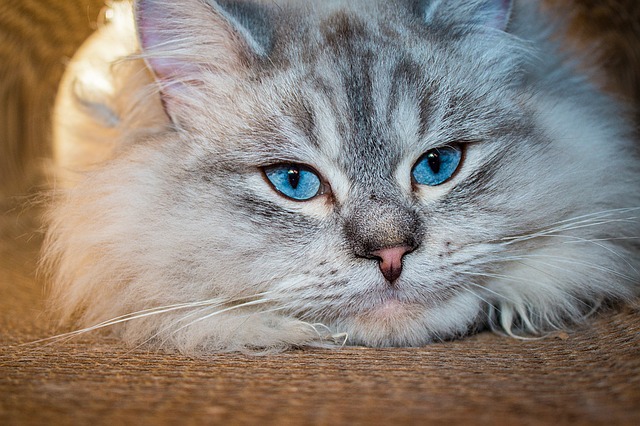Origin
In Russia, there is a landrace type of ancient long-haired domestic cat which is known as the Siberian cat.
This breed is present in Russia for more than 1000 years and they are often present in Russian folktales.
After importing the cat to the United States of America in 1990, the American Cat Fanciers Association welcomed the breed in 1999 and it’s now among the most popular cat breed today.
One of the qualities that make the Siberian cat popular today is the fact that it produces less of the Fel-D1 allergen protein than the average cat causing allergy and it can be referred to as a hypoallergenic cat breed.
Siberian Cat Characteristics
Siberian cat weight by Age
This Siberian cat is medium to medium-large in size and about 13 inches at the shoulder.
It is usually characterized as heavyweight compared to most other breeds.
A male Siberian kitten’s weight at 6 months is about 8 to 10 pounds while a females can be a little less.
Also, an adult Siberian cat can weigh between 16 to 24 pounds on average if fed well while a female is about 13 to 18 pounds.
How much a Siberian cat weighs depends on the parents’ genetic traits, health, and feeding.
However, the average weight of a Siberian cat is 15 pounds, which’s a healthy weight for a Siberian cat- full grown Siberian cat.
This breed is covered with a coarse to the soft, moderately long coat which comes in different colors such as black, golden, silver, blue, brown, red, and cream color.
Siberian cats are also characterized by rounded ears with lynx tipping, thick coats, green or gold eyes, etc, and have a life expectancy of about 10 to 18 years.
The Siberian cat character traits, are very affectionate, love being with people, and are suitable for a family with children, guests, first-time cat holders, and even other pets.
They can live happily with other cat breeds and even dogs.
Siberian cats love to be active and playful and you should get some toys for them if you’re not always around to have fun with them.
With this friendly personality, your kids and guests can easily tolerate them.
Its genetic memory of going fishing makes it playful with water and no doubt, the Siberian cat is a good hunter which is suitable for catching disturbing rats.
Siberians love to learn new tricks and their agile body allows them to perform different techniques while playing.
Breeding
Siberian cats get prepared for breeding even at five months old age which is quite faster than other breeds.
Siberian female cats usually produce five to six kittens on average as compared to other pedigreed cats which give birth to three-four kittens.
Also, they are extremely caring for their kittens, even the father takes care of new kitties too if allowed.
Siberians often do better in pairs in captivity due to their communal nature. But when a dam is between 18 months old, a kitten’s mortality decreases.
A Siberian Male cat is mature to start mating from 5 months old and can produce healthy sperm up to 10 years old.
For successful breeding, a variety of care must be given to the feline friend. The owner must follow the heat cycle of the female cat.
Both the male and female cats must be introduced to experts for vaccination and other needed medication.
The cats must be cleaned throughout the pregnancy period.
Also, additional care is required for the kittens and dams after giving birth. For example, if some kitties do not suck or mother does not want to breastfeed them well, you can offer them formula food.
In some regions where Siberian cats are not easily found, one male cat is used for reproduction, therefore similar genetic behaviors can be observed throughout the region.
Siberian cat Price
The Siberian cat breed is neither expensive nor cheap to buy since healthy kitten costs between $900 to $1500.
This price difference depends on whether it’s purebred or half-bred, or whether pediatric altering and genetic testing have been done.
Feeding Siberian Cats
To serve the best food to the Siberian cat, advice from the veterinarian is a must.
Dry foods are good for these cats but canned foods are full of extra moisture and lesser carbs.
Cats are not very likely to drink water enough which makes them sick sometimes, regular water intake should be monitored.
A measured amount of food at scheduled times, twice or thrice a day is sufficient for them.
Serving food all day leads to an overweight cat.
Siberian cats require a special diet for nutritional benefits.
Cats need meat in their diet as they are carnivores so it’s important to offer them foods that are rich in animal proteins.
It is important to serve the Siberian cat high-quality food rather than ordinary canned foods that contain a lot of additives.
The best food can be Grain-free with no corn, soy, or wheat containing 93% of meat, organs, and bones.
Also, supplementary vitamins are required for this breed
Some popular branded cat foods for healthy cats are Nature’s Variety Instinct by Original Grain-Free Recipe, Tiki Cat Gourmet Whole Food, Wellness CORE Signature Selects Flaked Skipjack Tuna & Wild Salmon, and Hearty Cuts Natural Canned Grain-Free Wet Cat Food.
Siberian Cat’s Care and Health
The Siberian cat’s thick coat should be combed or brushed at least a few times a week.
Since their coat is highly water-resistant, it can be a bit difficult to get a Siberian cat wet for shampoo.
The cat’s teeth should be brushed at least weekly with vet-recommended cat brush and toothpaste to prevent any periodontal disease.
Their nails should be trimmed every couple of weeks.
The eyes and ears should be also checked weekly.
They should be given a clean litter box as cats are very passionate about bathroom hygiene.
Also, a clean litter box will help in keeping the coat clean.
If you find out your cat is suddenly meowing non-stop for no reason, especially at night, then you should note that Siberian cats don’t meow too much unless there’s an issue and you can report this to your vet.
When your cat meows in the daylight in your presence, it may be because he wants to play with you, at least to get your attention.
You can stop this if it’s becoming excessive by offering food, toys, or walking away and he will stop.








